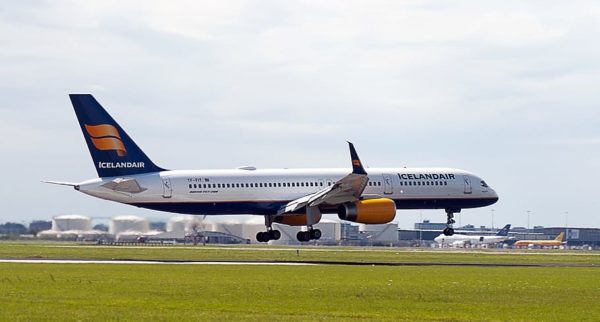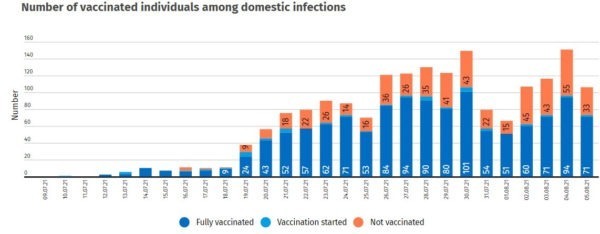
Iceland is currently experiencing a massive spike in COVID cases despite having one of the world’s most vaccinated populations. The country with a total population of just over 350,000 has recorded at least 100 new cases for five straight days, beginning on August 3. The current spike in cases has been ongoing since mid-July . Since then, the country has been registering anywhere from 50-150 cases daily.
Before the current outbreak, Iceland was recording a very low amount of cases. Prior to the current spike from mid-July onwards, the island nation was posting new cases in the single digits. Now they are dealing with their worst outbreak since late March, according to covid.is data.
Among Iceland’s current COVID surge, there is a high number of fully vaccinated individuals testing positive for the virus. On August 5, 77 of Iceland’s 106 new COVID cases were recorded in fully vaccinated individuals. 33 of the day’s cases were recorded among unvaccinated individuals while two others had received one dose of a two-dose vaccine. On August 4, the country reported 151 new cases. Of those 151 cases, fully vaccinated individuals accounted for 94 of them while 55 had not been vaccinated. Another two had again received just one dose. This trend of more positive cases among vaccinated versus unvaccinated Icelanders holds all the way to the start of the current surge.

Iceland is currently one of the most vaccinated countries on earth. Roughly 71% of the population has received at least one dose of a vaccine while 52% are fully vaccinated. On Tuesday, the country’s Chief Epidemiologist Þórólfur Guðnason said that Iceland’s high vaccination rate has not led to herd immunity as experts had hoped. Officials blamed the spike of cases on the “Delta variant”, saying it is more transmissible than previous strains.
The country initially lifted domestic restrictions on June 26, 2021 only to have them reimposed less than a month later. Gatherings are limited to less than 200 people and masks are mandated in buildings where social distancing guidelines cannot be met. Officials said they expect the restrictions to last for at least another two weeks, though it is very possible they could be extended.